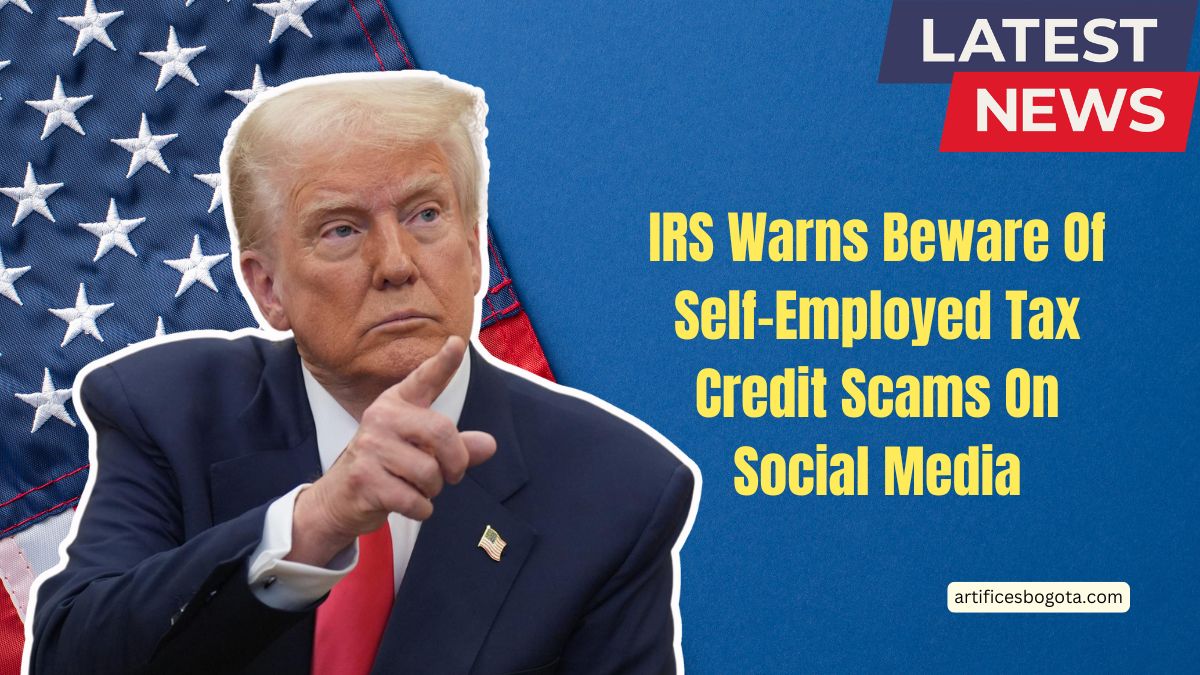The IRS (Internal Revenue Service) has recently issued a critical warning to taxpayers about a surge in social media scams promising access to a so-called Self-Employed Tax Credit.
As scammers become more sophisticated, they are using these platforms to impersonate the IRS and dupe taxpayers into providing sensitive personal information.
But does the Self-Employed Tax Credit really exist? Let’s dive into the details to understand what’s true and what’s fraudulent.
What Is the Self-Employed Tax Credit?
At the center of these scams is the so-called Self-Employed Tax Credit. Many social media posts claim that this is a new credit available for independent contractors, freelancers, and small business owners.
However, the IRS has made it clear that no such tax credit exists. Despite the enticing offers, any mention of a “Self-Employed Tax Credit” should raise immediate red flags.
Scammers frequently create fake IRS-looking websites or send out fraudulent direct messages promising access to the credit, often requesting personal information or a fee for processing.
It’s essential to remember that the IRS never charges a fee to apply for tax credits, and legitimate credits are only available through official IRS channels.
IRS Warning on Social Media Scams
The IRS has taken significant steps to address the increasing number of fraudulent tax schemes, particularly those operating on social media platforms.
The agency warns that no unsolicited messages from the IRS or any tax authority will ever ask you to claim a “Self-Employed Tax Credit” through social media or online links.
Here’s a breakdown of the most common signs of these scams:
| Scam Indicators | Details |
|---|---|
| Unsolicited Tax Credit Offers | No legitimate offer for a self-employed tax credit exists. |
| Requests for Personal Information | Scammers ask for personal, sensitive data, like your Social Security number or bank details. |
| Payment Demands | Scammers often request payment for services related to obtaining the credit. |
| Links to Fake IRS Websites | Fraudulent links that mimic the official IRS site to collect personal information. |
If you receive messages promising the Self-Employed Tax Credit, especially if they request personal details or a payment, do not respond. Always verify through official IRS resources.
How to Check If a Tax Credit Is Real
Instead of relying on social media or third-party websites, always go directly to the official IRS website or use their official phone numbers to inquire about any available tax credits.
The IRS provides a list of tax credits for which you might qualify based on your income, business expenses, or other factors.
If you’re unsure about your eligibility, you can use the IRS tool, “Tax Credit Eligibility Tool,” which provides accurate and updated information.
The End of the 2025 Tax Season: April 15
While the Self-Employed Tax Credit doesn’t exist, other legitimate tax credits might be available for the self-employed, including the Earned Income Tax Credit (EITC) or credits for expenses like healthcare and retirement savings. It’s critical to submit all necessary documents before the IRS tax deadline on April 15, 2025.
If you need more time to file your taxes, you can request a tax extension, which grants an additional six months to file. However, even with an extension, remember that tax payments are still due on April 15.
Common Scams to Watch Out For
Besides the “Self-Employed Tax Credit” scam, other tax-related frauds can affect taxpayers, especially during the filing season. These include:
- Phishing emails that look like they’re from the IRS.
- Fake phone calls claiming to be IRS agents demanding payment.
- Fraudulent tax preparers who promise huge refunds or charge upfront fees.
Always confirm that your tax professional is legitimate by checking their PTIN (Preparer Tax Identification Number) through the IRS database.
As tax season approaches, it’s essential to stay alert and protect your personal information from scammers. The Self-Employed Tax Credit is a scam that does not exist, and any communication offering it should be ignored. Always use official IRS channels to confirm tax credits and avoid falling victim to fraud.
Tax season can be stressful, but with vigilance, you can ensure your information is safe and that you’re getting the credits you qualify for.
FAQs
Is the Self-Employed Tax Credit real?
No, the IRS has confirmed that the Self-Employed Tax Credit does not exist. Any offers claiming to provide this credit are scams.
How do I report a scam to the IRS?
You can report tax scams to the IRS through their Phishing page on the official IRS website.
Can I apply for tax credits through social media?
No, avoid any tax offers through social media platforms. Always check your eligibility through the official IRS website or customer service.




